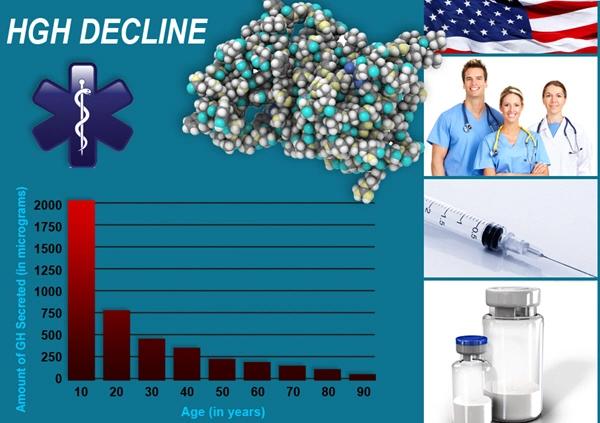
Introduction to Escitalopram and Its Uses
Escitalopram, commonly known under the brand name Lexapro, is a selective serotonin reuptake inhibitor (SSRI) widely prescribed to treat major depressive disorder and generalized anxiety disorder. Beyond its primary indications, escitalopram is favored for its favorable side effect profile and efficacy. However, its influence on cognitive functions is a subject of ongoing research and holds significant implications for the treatment of psychiatric conditions.
Cognitive Domains Affected by Escitalopram
Research has increasingly focused on understanding how escitalopram affects various cognitive domains. Cognitive functions, broadly categorized into memory, attention, executive functions, and processing speed, are crucial for daily functioning and quality of life. Depression and anxiety themselves often impair these functions, so discerning the effects of escitalopram on these domains is crucial for evaluating its overall therapeutic benefits.
Evidence from Clinical Studies
A number of studies have shed light on the cognitive effects of escitalopram, offering a mixed but generally positive picture. For instance, a randomized controlled trial published in the "Journal of Clinical Psychiatry" found that escitalopram improved both mood and various dimensions of cognitive function in adults with major depressive disorder. Particularly, improvements were noted in memory and executive function, which include higher-order processes such as planning, problem-solving, and decision-making.
Conversely, some studies suggest minimal to no impact on cognitive functions. These discrepancies can often be attributed to differences in study design, the cognitive scales used, and patient characteristics. Therefore, while some evidence supports cognitive enhancement, the extent and significance of these effects can vary.
Mechanisms Behind the Cognitive Effects
The mechanisms by which escitalopram may enhance cognitive function are not fully understood but are believed to be linked to its serotoninergic effects. Serotonin is a neurotransmitter that plays a key role in mood regulation, and its balanced levels are crucial for cognitive function. By preventing the reuptake of serotonin, escitalopram maintains higher levels of this neurotransmitter in the brain, potentially improving mood and cognitive clarity.
Furthermore, the reduction in anxiety and depressive symptoms itself may indirectly contribute to better cognitive performance. As symptoms decrease, cognitive resources previously compromised by illness may recover, thereby improving overall cognitive function.
Implications for Clinical Practice
The potential cognitive benefits of escitalopram are particularly relevant in clinical settings where cognitive impairment coexists with depression or anxiety. For healthcare providers, understanding the cognitive effects of escitalopram can aid in tailoring treatment plans that address both affective and cognitive symptoms.
Conclusion
While more research is necessary to fully delineate the cognitive effects of escitalopram, current studies suggest a generally positive influence on cognitive functions, particularly in patients with major depressive disorder. These findings highlight the importance of considering cognitive outcomes in the treatment of depression and anxiety, ensuring a holistic approach to mental health therapy. Future research should aim to clarify these effects further, exploring long-term outcomes and the impact on different populations to optimize treatment strategies.

- Exploring the Relationship Between Escitalopram and Weight Changes in American Males [Last Updated On: February 27th, 2025] [Originally Added On: February 27th, 2025]
- Introduction To Escitalopram [Last Updated On: March 2nd, 2025] [Originally Added On: March 2nd, 2025]
- Understanding Escitalopram Use During Pregnancy for American Males [Last Updated On: March 4th, 2025] [Originally Added On: March 4th, 2025]
- Understanding Escitalopram: Efficacy, Side Effects, and Patient Experiences in Men [Last Updated On: March 5th, 2025] [Originally Added On: March 5th, 2025]
- Addressing Mental Health in American Males: Efficacy of Escitalopram in Adolescents [Last Updated On: March 6th, 2025] [Originally Added On: March 6th, 2025]
- Understanding Escitalopram: Chemical Structure, Mechanism of Action, and Clinical Implications [Last Updated On: March 7th, 2025] [Originally Added On: March 7th, 2025]
- Safely Managing Escitalopram Withdrawal: Strategies, Symptoms, and Support for Men [Last Updated On: March 8th, 2025] [Originally Added On: March 8th, 2025]
- Escitalopram vs. Competitors: Efficacy, Side Effects, and Cost in Mental Health Treatment [Last Updated On: March 9th, 2025] [Originally Added On: March 9th, 2025]
- Exploring the Effectiveness of Escitalopram in Managing Panic Disorders Among American Males [Last Updated On: March 10th, 2025] [Originally Added On: March 10th, 2025]
- Escitalopram's Efficacy in Treating OCD Among American Males: A Comprehensive Review [Last Updated On: March 12th, 2025] [Originally Added On: March 12th, 2025]
- Exploring the Impact of Escitalopram Interactions: A Guide for American Males [Last Updated On: March 12th, 2025] [Originally Added On: March 12th, 2025]
- Exploring the Impact of Escitalopram on Mental Health in American Males: A Nursing Perspective [Last Updated On: March 13th, 2025] [Originally Added On: March 13th, 2025]
- Exploring the Safety of Escitalopram Use in Elderly American Males: Essential Precautions [Last Updated On: March 15th, 2025] [Originally Added On: March 15th, 2025]
- Escitalopram's Efficacy in Treating PTSD Among American Males: A Review [Last Updated On: March 16th, 2025] [Originally Added On: March 16th, 2025]
- Enhancing Escitalopram Adherence in American Males: Strategies and Challenges [Last Updated On: March 17th, 2025] [Originally Added On: March 17th, 2025]
- Escitalopram Overdose: Symptoms, Actions, and Prevention for American Males [Last Updated On: March 17th, 2025] [Originally Added On: March 17th, 2025]
- Escitalopram's Impact on American Males: Case Studies in Depression and Anxiety Management [Last Updated On: March 18th, 2025] [Originally Added On: March 18th, 2025]
- American Men's Experiences with Escitalopram: Benefits, Side Effects, and Long-term Use [Last Updated On: March 18th, 2025] [Originally Added On: March 18th, 2025]
- Escitalopram's Impact on Sleep: Effects and Management for American Males [Last Updated On: March 18th, 2025] [Originally Added On: March 18th, 2025]
- Monitoring Liver Function in American Men on Escitalopram: Guidelines and Importance [Last Updated On: March 19th, 2025] [Originally Added On: March 19th, 2025]
- Escitalopram: Efficacy, Side Effects, and Use in American Males for Depression and Anxiety [Last Updated On: March 21st, 2025] [Originally Added On: March 21st, 2025]
- Escitalopram's Impact on Blood Pressure in American Males: A Clinical Study [Last Updated On: March 21st, 2025] [Originally Added On: March 21st, 2025]
- Escitalopram Pharmacokinetics in American Males: Absorption, Distribution, Metabolism, Excretion Overview [Last Updated On: March 21st, 2025] [Originally Added On: March 21st, 2025]
- Escitalopram's Role in Treating Social Anxiety Disorder in American Males [Last Updated On: March 21st, 2025] [Originally Added On: March 21st, 2025]
- Escitalopram: Managing Depression in Men During Andropause Effectively [Last Updated On: March 22nd, 2025] [Originally Added On: March 22nd, 2025]
- CBT and Escitalopram: A Dual Approach to Mental Health for American Men [Last Updated On: March 22nd, 2025] [Originally Added On: March 22nd, 2025]
- Escitalopram as Adjunctive Therapy for Bipolar Disorder in American Males: Benefits and Risks [Last Updated On: March 23rd, 2025] [Originally Added On: March 23rd, 2025]
- Escitalopram's Efficacy in Treating BDD Among American Males: Dosage and Considerations [Last Updated On: March 23rd, 2025] [Originally Added On: March 23rd, 2025]
- Escitalopram: Long-Term Use and Impacts on American Males [Last Updated On: March 23rd, 2025] [Originally Added On: March 23rd, 2025]
- Escitalopram: Enhancing Mental Health in American Men [Last Updated On: March 24th, 2025] [Originally Added On: March 24th, 2025]
- Escitalopram: Understanding Its Pharmacodynamics and Benefits for American Males [Last Updated On: March 24th, 2025] [Originally Added On: March 24th, 2025]
- Escitalopram: From Lab to Lexapro, Transforming Depression Treatment in American Males [Last Updated On: March 24th, 2025] [Originally Added On: March 24th, 2025]
- Escitalopram Use and Drug Interactions: A Guide for American Males [Last Updated On: March 24th, 2025] [Originally Added On: March 24th, 2025]
- Escitalopram's Role in Managing Generalized Anxiety Disorder in American Males [Last Updated On: March 24th, 2025] [Originally Added On: March 24th, 2025]
- Escitalopram: Effective Depression and Anxiety Treatment for American Males [Last Updated On: March 24th, 2025] [Originally Added On: March 24th, 2025]
- Escitalopram's Role in Managing Major Depressive Disorder Phases in American Males [Last Updated On: March 24th, 2025] [Originally Added On: March 24th, 2025]
- Escitalopram: Enhancing Cognitive Function and Mental Health in American Males [Last Updated On: March 24th, 2025] [Originally Added On: March 24th, 2025]
- Escitalopram Safety in American Males with Liver Impairment: A Detailed Analysis [Last Updated On: March 24th, 2025] [Originally Added On: March 24th, 2025]
- Escitalopram's Evolving Role in Treating Psychiatric Disorders in American Males [Last Updated On: March 25th, 2025] [Originally Added On: March 25th, 2025]
- Escitalopram's Impact on BPD Symptoms in American Males: A Pilot Study [Last Updated On: March 25th, 2025] [Originally Added On: March 25th, 2025]
- Escitalopram's Role in Treating Co-morbid Physical Disorders in American Males [Last Updated On: March 25th, 2025] [Originally Added On: March 25th, 2025]
- Navigating Antidepressant Switch: Fluoxetine to Escitalopram for American Males [Last Updated On: March 25th, 2025] [Originally Added On: March 25th, 2025]
- Escitalopram Enhances Quality of Life in Palliative Care for American Males [Last Updated On: March 25th, 2025] [Originally Added On: March 25th, 2025]
- Escitalopram's Role in Treating Major Depressive Disorder in American Males [Last Updated On: March 25th, 2025] [Originally Added On: March 25th, 2025]
- Escitalopram Use in Pediatric Males: Safety, Monitoring, and Long-Term Effects [Last Updated On: March 25th, 2025] [Originally Added On: March 25th, 2025]
- Escitalopram's Role in Treating Post-Stroke Depression Among American Men: A Review [Last Updated On: March 25th, 2025] [Originally Added On: March 25th, 2025]
- Escitalopram: A Hopeful Remedy for American Men with Seasonal Affective Disorder [Last Updated On: March 25th, 2025] [Originally Added On: March 25th, 2025]
- Managing Escitalopram's Sexual Side Effects: A Comprehensive Guide for American Males [Last Updated On: March 26th, 2025] [Originally Added On: March 26th, 2025]
- Escitalopram: A Promising Treatment for Neuropathic Pain in American Males [Last Updated On: March 26th, 2025] [Originally Added On: March 26th, 2025]
- Escitalopram-Induced Mania: Risks and Management in American Males [Last Updated On: March 26th, 2025] [Originally Added On: March 26th, 2025]
- Escitalopram: Effective Treatment for Chronic Depression in American Males [Last Updated On: March 27th, 2025] [Originally Added On: March 27th, 2025]
- Escitalopram and Alcohol: Risks and Recommendations for American Males [Last Updated On: March 27th, 2025] [Originally Added On: March 27th, 2025]
- Escitalopram's Efficacy and Considerations for Anxiety in American Males [Last Updated On: March 27th, 2025] [Originally Added On: March 27th, 2025]
- Escitalopram: Enhancing Mental Health in American Males - Uses, Efficacy, and Integration [Last Updated On: March 27th, 2025] [Originally Added On: March 27th, 2025]
- Escitalopram in Geriatric Psychiatry: Efficacy, Safety, and Considerations for American Males [Last Updated On: March 27th, 2025] [Originally Added On: March 27th, 2025]
- Escitalopram Interactions with Antidepressants in American Males: Pharmacodynamic and Pharmacokinetic Insights [Last Updated On: March 27th, 2025] [Originally Added On: March 27th, 2025]
- Escitalopram and Serotonin Syndrome: Risks and Management for American Males [Last Updated On: March 27th, 2025] [Originally Added On: March 27th, 2025]
- Escitalopram: A Patient's Journey from Depression to Recovery [Last Updated On: March 27th, 2025] [Originally Added On: March 27th, 2025]
- Escitalopram's Cognitive Impact on American Males: A Comprehensive Medical Analysis [Last Updated On: March 27th, 2025] [Originally Added On: March 27th, 2025]
- Escitalopram's Role in Treating Eating Disorders Among American Males [Last Updated On: March 27th, 2025] [Originally Added On: March 27th, 2025]
- Escitalopram's Impact on Cardiovascular Health in American Males: Risks and Management [Last Updated On: March 29th, 2025] [Originally Added On: March 29th, 2025]
- Escitalopram's Impact on Depression in American Adolescent Males: Efficacy and Considerations [Last Updated On: March 29th, 2025] [Originally Added On: March 29th, 2025]
- Escitalopram: Managing Mood Disorders in American Men Through Serotonin Regulation [Last Updated On: March 29th, 2025] [Originally Added On: March 29th, 2025]
- Escitalopram's Potential in Treating Agoraphobia Among American Males: Clinical Insights [Last Updated On: March 31st, 2025] [Originally Added On: March 31st, 2025]
- Optimizing Escitalopram Dose Titration for American Males: A Medical Perspective [Last Updated On: April 1st, 2025] [Originally Added On: April 1st, 2025]
- Escitalopram's Impact on Autonomic Nervous System in American Males: Benefits and Side Effects [Last Updated On: April 2nd, 2025] [Originally Added On: April 2nd, 2025]
- Escitalopram's Efficacy in Treating PDD Among American Males: Benefits and Side Effects [Last Updated On: April 2nd, 2025] [Originally Added On: April 2nd, 2025]
- Escitalopram's Role in Managing PMDD Symptoms in American Males: Benefits and Considerations [Last Updated On: April 5th, 2025] [Originally Added On: April 5th, 2025]
- Escitalopram and Suicide Risk in Young American Males: A Critical Analysis [Last Updated On: April 6th, 2025] [Originally Added On: April 6th, 2025]
- Escitalopram Enhances Quality of Life in American Men with Depression: A Systematic Review [Last Updated On: April 7th, 2025] [Originally Added On: April 7th, 2025]
- Escitalopram: A Key SSRI for Managing Depression and Anxiety in American Men [Last Updated On: April 8th, 2025] [Originally Added On: April 8th, 2025]
- Transitioning from Citalopram to Escitalopram: Insights for American Males [Last Updated On: April 9th, 2025] [Originally Added On: April 9th, 2025]
- Escitalopram Side Effects and Management Strategies for American Males [Last Updated On: April 10th, 2025] [Originally Added On: April 10th, 2025]
- Managing Escitalopram Withdrawal: Strategies for American Males [Last Updated On: April 10th, 2025] [Originally Added On: April 10th, 2025]
- Escitalopram's Potential in Treating Postpartum Depression in American Males: Efficacy and Safety [Last Updated On: April 10th, 2025] [Originally Added On: April 10th, 2025]
- Escitalopram: Effective SSRI for MDD and GAD in American Males [Last Updated On: April 10th, 2025] [Originally Added On: April 10th, 2025]
- Escitalopram and Psychotherapy: A Holistic Approach for American Men's Mental Health [Last Updated On: April 10th, 2025] [Originally Added On: April 10th, 2025]
- Genetic Factors Influencing Escitalopram Response in American Males: A Pharmacogenomic Insight [Last Updated On: April 11th, 2025] [Originally Added On: April 11th, 2025]
- Escitalopram's Role in Treating Body Image Disorders Among American Males [Last Updated On: April 11th, 2025] [Originally Added On: April 11th, 2025]
- Escitalopram Use in American Males with Diabetes: Managing Mental Health and Interactions [Last Updated On: April 14th, 2025] [Originally Added On: April 14th, 2025]



List of USA state clinics - click a flag below for blood testing clinics.
Word Count: 477


















































